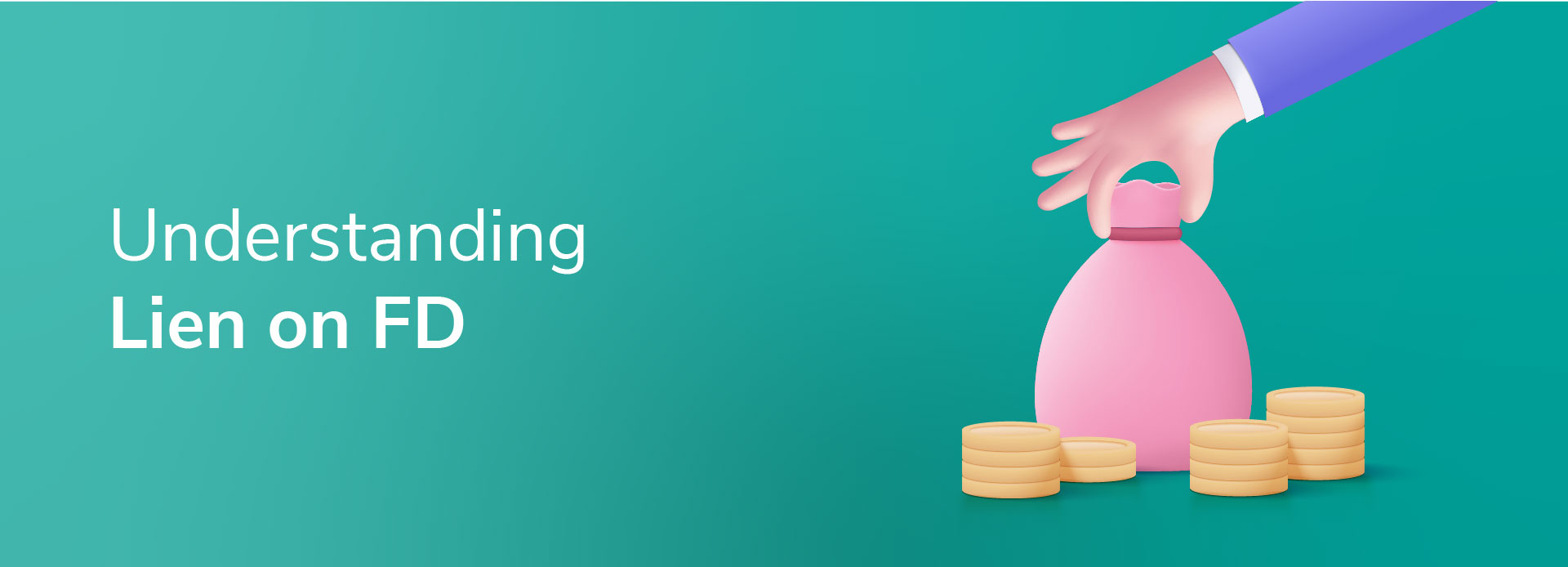
Lien on FD: Benefits, Risks & How to Avoid
10 May 2024 | By INDIE
When it comes to traditional financial instruments, fixed deposits (FDs) tend to be popular since they offer the prospect of regular income at fixed intervals and a fixed rate of interest.
But in scenarios where you need funds urgently for which you may have to borrow, fixed deposits can also serve as collateral for these loans. This is called a lien on the FD and it helps to know how it works should you wish to consider it in the future.
Meaning of Lien on an FD
In a lien on FD, the lender has the right over the fixed deposit proceeds in circumstances where the borrower is unable to repay the loan. The lender is typically a bank or a financial institution. When a borrower pledges his FD as collateral for a loan or credit facility, the lender places a lien on that FD. This restricts the borrower from prematurely withdrawing the fixed deposit. Even on maturity, the lender has the right to the FD proceeds till the borrower repays the loan in its entirety.
What Are The Benefits of Lien on FDs?
The benefits of a lien on FD are as follows:
1. Access to Credit:
By opting for FD lien, individuals can access credit which could be either personal loans, or credit cards, or overdraft facilities, particularly when they need funds and don’t wish to prematurely terminate the FDs.
2. Interest Rates:
Since the FDs serve as collateral for loans obtained, they become secured loans and individuals can reap the benefits of lower interest rates as compared to unsecured loans.
3. FD Benefits Maintained:
An FD lien does not affect the maturity period or value of the FD. The FD will continue to generate interest prevailing at the time the FD was first booked during the tenure of the FD.
Also Read: Benefits of FDs for senior citizens
What Are The Risks of Lien on FDs?
A lien on FD does come with its share of risks, which are as follows:
1. Restricted Access:
Once a lien is placed on an FD, an individual cannot prematurely withdraw this FD if in urgent need of funds. The lender first has the right to the proceeds of this FD until the loan is repaid in full.
2. Potential loss of FD:
If an individual defaults on a loan against which the FD was offered as collateral, then the lender can liquidate that FD to recover the amount loaned. For the individual, this translates into an investment loss.
3. Credit Score Impacted:
Failure to repay a loan negatively impacts an individual’s credit score thereby making it tougher to obtain loans in the future.
How to Avoid Lien on FDs?
When in urgent need of funds, you can prevent lien on FD by considering other alternatives such as:
1. Emergency Fund:
An emergency fund is created for the very purpose of meeting unexpected expenses, and can be dipped into during emergencies. You can consider an emergency fund that is equivalent to three to six months of expenses[1] .
2. Diversified Investments:
Besides FDs, you can consider diversifying your investment portfolio by putting money into an array of liquid assets such as money market funds, savings accounts, and short-term bonds. You can easily redeem them when you urgently require funds thereby preventing a lien on FDs.
3. Planned Borrowings:
If you are expecting to borrow in the future, it makes sense to plan these borrowings in such a way that avoids the necessity to offer FDs as collateral. This is because a lien on FDs is also one kind of a debt after all and not completely risk-free as mentioned above.
Conclusion
While a lien on a fixed deposit can help you access credit when required, its inherent risks cannot be ignored either. It makes sense to consider other alternatives when securing funds before opting to pledge an FD as collateral. This can help you maintain the FD as a long-term investment.
Disclaimer: The information provided in this article is generic and for informational purposes only. It is not a substitute for specific advice in your circumstances. Hence, you are advised to consult your financial advisor before making any financial decision. IndusInd Bank Limited (IBL) does not influence the views of the author in any way. IBL and the author shall not be responsible for any direct/indirect loss or liability incurred by the reader for making any financial decisions based on the contents and information.




